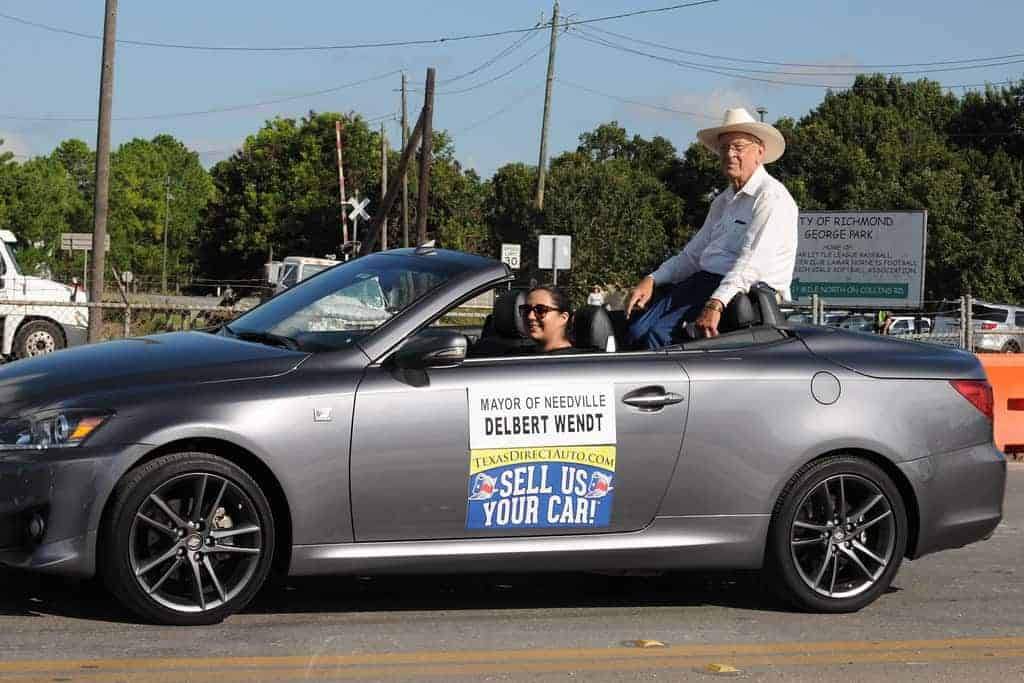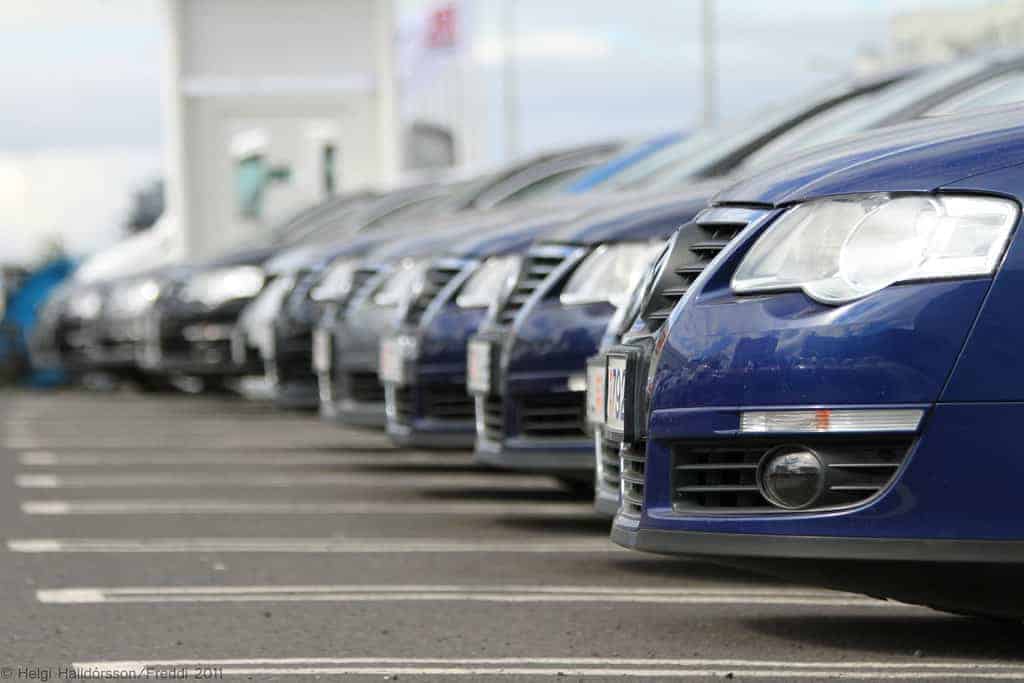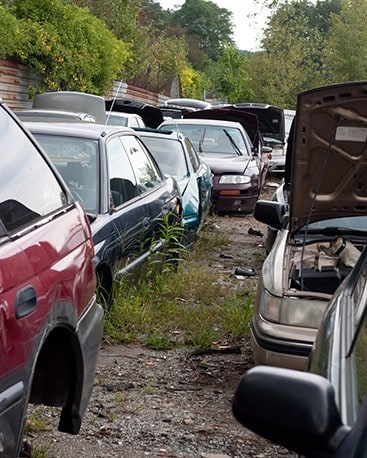Should You Trade in Your Old Car or Sell it Privately?

When the time comes to change your vehicle, one of the biggest things you need to ask yourself is whether should you trade in your old car to a dealer or should you try to sell it yourself privately instead.
Trading in your old vehicle with the dealer is easy and convenient, but you are unlikely to get as much money for your car from a dealer as you would selling it privately. However, most US states only charge sales tax on the difference between the trade-in value and the new-car price, so you need to do the math.
Selling a vehicle yourself can be a lot of hassle, and your local tax regime might mean that the lower price offered by the dealer might be the same or more in real terms than the price you get selling privately anyway.
In my years in the retail auto business, I’ve come across people who would never trade in their old vehicle and those who would never consider doing anything else. What’s right for you will depend on a number of things, which I’m going to cover here to help you decide whether trading in or selling privately is going to be the best way for you to go.
- Pros of trading in to a dealer
- Cons of trading in to a dealer
- Pros of selling privately
- Cons of selling privately
- Why trading in might be more profitable than you think
- Selling to a car buying service
- Car buying services
- The easy way to avoid the problem in the first place
Pros of trading in to a dealer
The number one reason for trading in your old vehicle as part of the deal when buying your next vehicle has to be the sheer convenience of it. All you have to do is agree on a price for your trade-in with the dealer as part of the negotiations for your new vehicle, and when you arrive to collect your new one you leave your old vehicle with the dealer.
If convenience is your number one priority, selling to the dealer you’re buying from is a complete no-brainer and you should go ahead and do it.

Cons of trading in to a dealer
Let’s be honest, we all know that if we trade our old vehicle in as part of the deal for a new vehicle we’re not going to be getting the best possible price for the trade-in. After all, the dealer is there to make money, and sometimes your trade-in will be a bigger profit opportunity for the dealer than the one they’re selling to you.
Dealers pay wholesale prices and you buy at retail prices, and the gap between the two when it comes to autos can be pretty significant. Even if you’ve done your research online and you are really clued-up on what your vehicle is worth, the dealer will probably use the fact it’s easier and more convenient for you to just sell the vehicle to them to push down the price for your trade-in.
I’m not entirely comfortable will telling you this next downside to selling a vehicle to a dealer, but I decided when I set about creating this site that I would tell it like it is, so here goes. If you have a problem with your vehicle that isn’t blinding obvious, a dealer is a lot more likely to spot it than a private buyer might.
Some private buyers can be pretty clued-up, and you could even find yourself selling to a technician or a trader. However, most of the time you’ll be selling to a member of the public like you, and that could allow you to offload your problem without having to get it fixed or take a knock on the price.
Pros of selling privately
You don’t have to be a brain surgeon to realize the biggest upside of selling your vehicle privately instead of selling to the dealer is you’re going to be able to get a better price. Don’t fool yourself into thinking you can get as much as a similar vehicle is priced for on a dealer’s lot, because those are being sold with warranties and comebacks that you’re not going to be offering as a private seller. Even so, you can get closer to retail for your old vehicle than you’d get trading in.
Cons of selling privately
Without a doubt, the biggest con of selling your vehicle yourself through classified ads on message boards, newspapers, online, or any other way you can think of is the sheer hassle of it. You’ll need to get your vehicle properly detailed, you have to take photographs and create the ads, and that’s before you come into contact with potential buyers.
When you’re getting paid (pretty well actually) for selling cars, it’s part of your job to put up with tire-kickers, time-wasters, and idiots with completely unrealistic ideas of how much you might come down from your asking price.
If it’s not your job, you might soon start to wish you’d decided to trade in for a lower price after all. You might be lucky and have a good experience, but you have no idea just how much of a pain in the (you know what) that selling a car can be at times.
There’s also the possibility that you could find yourself running two vehicles for a while if you decide to sell privately. When you agree on a date for collection or delivery of a new car, if you haven’t sold your old one by that date, which you might not have, you could find yourself with two vehicles to insure, tax, park, and care for. Even if it’s just for a while, it can be a less-than-desirable situation you might want to avoid.

On completely the other hand, you might find a buyer for your vehicle but they insist on completing the deal before your new one arrives. You’re then left with no vehicle until the date you collect your new ride, so you might find yourself having to hire a vehicle to get to work, etc. The cost of that is going to eat away at any extra money you made by selling privately in the first place.
Why trading in might be more profitable than you think
This won’t apply everywhere in the country, but in some states, the local tax rate could mean trading in to the dealer you’re buying your new vehicle from could be more economically beneficial than you might imagine.
In most states, buyers get a break on sales tax when they trade in their old vehicle. Let me explain. If you’re buying a new car that costs $40,000 and the tax rate is 8.5 percent, you’ll be paying something like $3,400 in taxes. If you are trading in an old vehicle and you’re getting $15,000 for it as part of the deal, you’ll then only pay tax on the difference between your trade-in and the price of the vehicle you’re buying.
In this particular case, you’ll then only be paying 8.5 percent tax on $25,000, which would be $2,125, and that’s $1,275 less than if you didn’t have that $15,000 trade-in. You then have to ask yourself if it would be worth trying to sell your vehicle privately because you’d have to be getting more than $16,275 for your current vehicle to be better off. You might get more, but not much, and in my opinion certainly not enough to justify the hassle you’d avoid by trading in.

Car buying services
There are plenty of people who make their living flipping cars, and you may well be approached by some of these traders if you put your vehicle up for sale yourself. These range from the individual who does it on the side for a bit of extra income to vast corporations who buy thousands of cars every year and place them with dealers or put them through their auctions.
As well as ones who might approach you as a regular buyer, there are now companies who operate car buying services online that offer to take the hassle out of selling your car. You input the details of your vehicle into the website and they give you a price based on what you tell them. The price they offer will be less than you’d be able to ask for selling privately, and also less than the dealer might offer for you to trade in.
They sometimes claim you’ll get a better deal buying your new car if you sell to them because the dealer will give you a better deal with nothing to trade in. This is complete and utter BS because dealers always want good quality used stock to resell.
Unless you have a real piece of junk a dealer wouldn’t put on their lot for sale, there’s no good reason for using one of these services unless you just want to be rid of your car for some reason and you’re not going to be replacing it.
The easy way to avoid the problem in the first place
There’s one way to avoid ever having to decide what you should do with your old vehicle when you’re ready to replace it, and that’s to lease your vehicle. If you’ve never considered leasing, or if you’ve thought about it but not looked into it properly, check out my blog “Is Leasing a Car Right For You,” which will give you the lowdown on leasing and tell you why it’s such a good way of getting a new vehicle.
If you lease your vehicle you’ll never have to worry about how to dispose of your old vehicle when you’ve had enough because it will simply go back to the leasing company. There are things to consider about mileage and condition with leasing, but it’s all covered in more detail in the blog.
Not having to sell your vehicle also means you can have any color or specification you like without worrying about how your choice will affect the eventual resale value. So, if you want a pink Jeep Wrangler you can go ahead and get one without a care about what that color will do for the eventual resale value.

It’s up to you whether you trade your vehicle in or try to sell it yourself, but with my experience of selling cars, I would always be tempted to trade in rather than try to sell myself. If the little extra you might end up getting by selling privately really is that important to you then go ahead.
But if a few hundred dollars, which is what we’re probably talking about, is that important to you, it might be worth thinking more carefully about the model you’re buying and getting a better deal on that, or even looking to buy something a little more affordable. Of course, my preference would always be to avoid the dilemma completely by leasing your vehicle instead.
